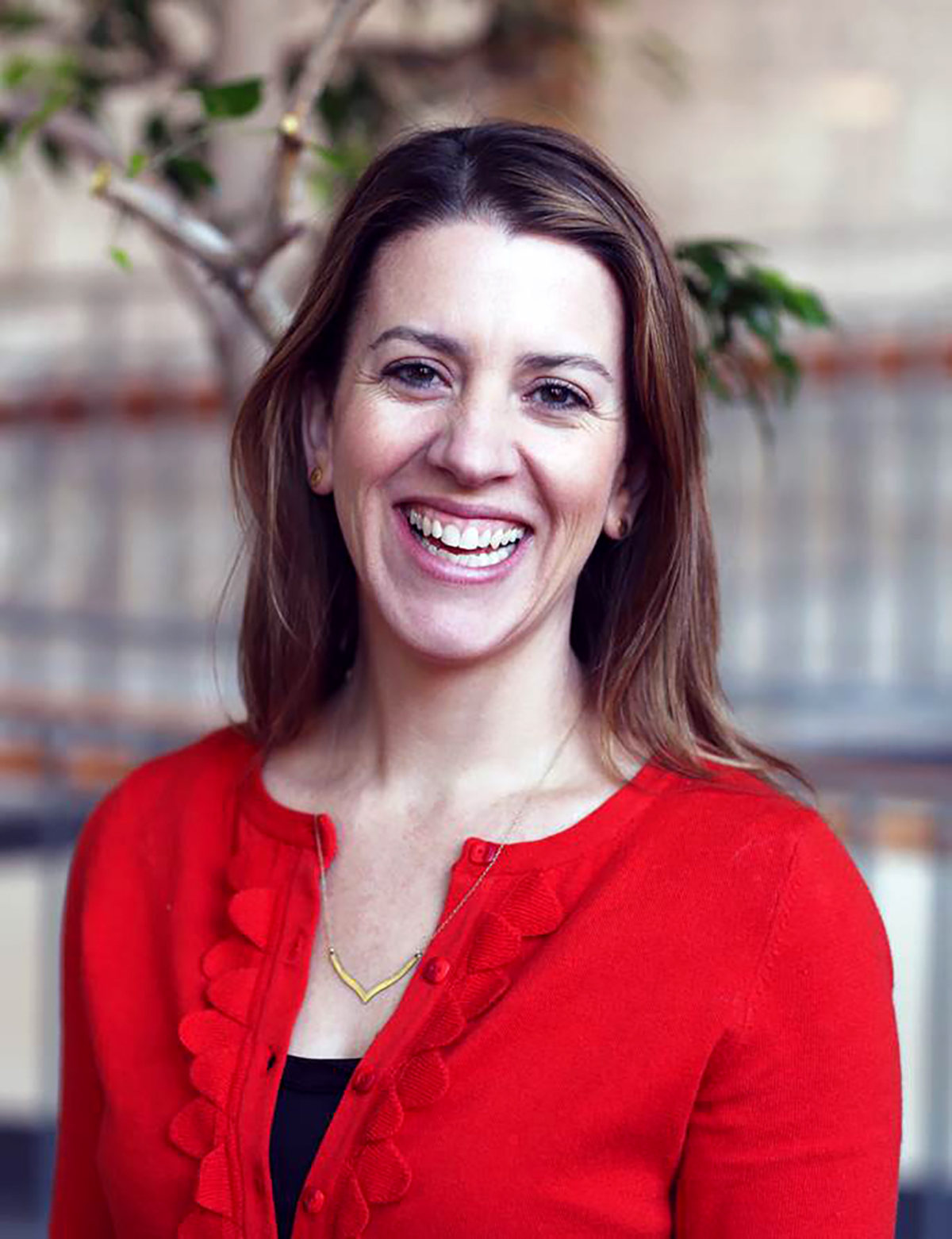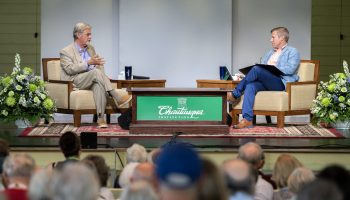Anna Blythe Lappé has her fingers in so many pies, she could paint a colorful mural.
There’s the Small Planet Institute and Small Planet Fund. Real Food Media and Real Food Films. Real Food Reads and Food MythBusters. Voices of the Food Chain and Voices of an Organic Planet. Panta Rhea Foundation, Rainforest Action Network, and Mesa Refuge.
Underpinning all of her work are the knowledge, know-how and values expressed in three acclaimed books: Hope’s Edge, Grub and Diet for a Hot Planet.
As an authority on land-based food systems and agricultural sustainability who fights for fair, healthy, humane, local and environmentally responsible food chains, Lappé speaks up and speaks out.
At 10:45 a.m. Wednesday in the Amphitheater, Lappé, a 2016 recipient of the James Beard Foundation Leadership Award, will take to the stage to give an address titled “The Empathy of Food.”
For many in the baby-boom generation, Lappé has long been a household name. She said that both of her parents influenced her work.

Her father, toxicologist and bioethicist Marc Alan Lappé, was instrumental in the movement to integrate ethics with toxics and genetics policy. He advocated for the precautionary approach to risk management and against toxic chemicals — including the massive amount of toxic wastes dumped at Love Canal in Niagara Falls — silicon implants and genetically-modified organisms, until his death from a brain tumor in 2005.
At age 26, her mother, Frances Moore Lappé, made her own mark with her pathbreaking book about why there’s hunger in a world of plenty — Diet for a Small Planet — the first of many.
Frances Lappé wrote about the harmful environmental effects and wastefulness associated with meat production, and argued that world hunger is caused by ineffective food policy rather than food scarcity. She provided rules for a healthy diet and recipes for high protein, meatless cooking. According to the Smithsonian’s National Museum of American History, Diet is “one of the most influential political tracts of the time.”
While traveling with each parent at a young age, Lappé realized the importance of issues associated with power (who gets what, where, when, why and how, and who does not), and empathy (who cares about the people working the land, who doesn’t, and why not).
Lappé did not plan to go into “the family business.” She left the San Francisco Bay Area to attend college at Brown University, and then entered Columbia University’s School of International and Public Affairs.
Partway through her master’s curriculum, her vision shifted.
“I had a fateful conversation with my mother in a bar in New York City about what she should do with her life,” Lappé said. “I told her she should revisit Diet for a Small Planet on the eve of its 30th anniversary; go back and pick up where the story left off. The root causes of hunger are caused by scarcity of democracy, not food.”
She said she advised her mother to show, rather than simply tell about, movements and cities around the world that are building democracy.
Instead of her mother undertaking the project alone, they teamed up. Initially they focused on a book, Hope’s Edge: The Next Diet for a Small Planet.
As she was still in grad school, she said she successfully petitioned her advisers to allow this book to serve as her graduate thesis.
Lappé spent her second year at Columbia working on it, including traveling to Bangladesh, India, Poland and other countries, where she met with environmental and social change-makers.
“It was a life-changing experience for me,” Lappé said. “I became a public educator. Our food system is a driver of crises and a powerful lever for solutions.”
In 2001, while they were immersed in creating Hope’s Edge, Lappé and her mother co-founded the Small Planet Institute to show “that humans are capable of changing failing ideas in order to turn our planet toward life.”
They also established the Small Planet Fund to raise money to “support global efforts for justice and sustainability.”
Five years later, the book Lappé wrote with Friday’s lecturer Bryant Terry — Grub: Ideas for an Organic Kitchen — made it onto bookstore shelves nationwide.
She said that her third book, Diet for a Hot Planet: The Climate Crisis at the End of Your Fork and What You Can Do About It, was due to the publisher on the day that her first child was due to be born; fortunately, her daughter arrived late.
“When I wrote Diet for a Hot Planet, no one was talking about the connection between greenhouse gas emissions and the food sector, which produces a third of these emissions,” Lappé said. “It’s a big problem and we have the power to reduce them. Since then, I’ve seen an incredible shift in that conversation.”
For the past eight years, Lappé has been an active member of Rainforest Action Network’s board of directors. When she joined RAN’s board, it was the only organization with an agribusiness campaign.
“One of the biggest drivers of rainforest destruction is commodity production,” Lappé said. “The main work now is in Malaysia and Indonesia, connected to palm oil. Maybe my day-to-day life isn’t about addressing the climate crisis, but being on the board is a way of connecting to it.”
Although she has been steadily contributing to numerous books, Lappé said she has shifted from book writing to different storytelling methods. Her writing has appeared in prominent newspapers, including The New York Times, and in magazines, such as Gourmet.
Lappé also established Real Food Media to provide “powerful storytelling and communications to inspire, educate, and grow the movement for sustainability and equity along the food chain.”
RFM collaborates with other organizations within the United States to generate conversation about the food system and to “connect communities for action” through grassroots events, an online action center, and creative videos and movies for children and adults.
RFM has also partnered with StoryCorps on a project called “Voices of the Food Chain,” and with the the Food Chain Workers Alliance and Center for Good Food Purchasing to advance the “Good Food Purchasing Program” in cities throughout the United States.
On public television, Lappé has appeared as an expert on “Need to Know” and in the documentary “Nourish,” as well as a co-host of “The Endless Feast.” She was also featured on the the Sundance Channel’s documentary series about environmental innovation, “Big Ideas for a Small Planet.”
For the past two years, Lappé has worked as the food program officer for Panta Rhea, a private foundation in Sausalito, California, that assesses and funds organizations committed to a more just and sustainable world.
Lappé said that her biggest challenge is not unique to her.
“It’s how much our public institutions, like the EPA, USDA and FDA, are influenced by corporate donors and corporate lobbyists,” she said.
Yet when she speaks to diverse audiences across the country, Lappé is heartened by their shared values.
“People don’t want to contribute to climate change or pollute water,” she said. “But we don’t see this reflected because of the incredible influence that the largest companies in the world have on our elected officials.”
According to Lappé, the problem of an unsafe and unhealthy food system is becoming more acute in the United States.
“Hope’s Edge came out 15 years ago,” she said. “That’s what gets me up in the mornings — people seeing that there really is a food system. We need to care about food workers, and if we care about our own health care, we have to care about animals.”




